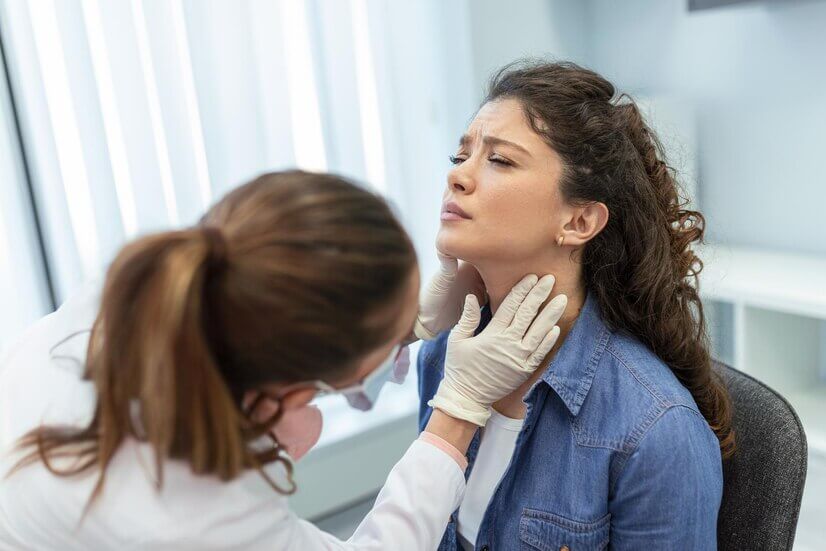It is said that chickenpox is a contagious disease that affects humans once in a lifetime. This disease is most common in children under two years, but if a baby is lucky enough to stay prevented, this derma illness will catch it at any age. This medical illness is caused by a virus called the varicella-zoster virus. Sometimes, diagnosing this issue in the initial phase is challenging, but it becomes easy to recognize after a day or a few days. A common symptom in the sighting is redness on the skin with small water blisters. We will discuss this particular illness’s symptoms, effects, and prevention. Furthermore, you will get the answer to many queries you have in your mind regarding chickenpox.
A basic introduction to Chickenpox and its Vaccine
Chickenpox is a contagious illness. It transfers from one person to another, and even it can affect the people who are already vaccinated or have not encountered this problem. If we talk about vaccination for this skin problem, it was introduced back in 1995. Moreover, according to studies and experts, the vaccine is safe to use. This injection has a few side effects that are not dangerous, like arm soreness and fever. Some severe reaction also occurs, like pneumonia, brain or spinal cord infection, etc. But the reaction occurs rarely.
Symptoms of Chickenpox
When it comes to the symptoms of this skin problem, red rashes with watery blisters are one of the most common symptoms. Remember that it is not the only indication of this illness; a common person can be mistaken while diagnosing. So, go for a medical checkup from an authentic doctor. Let us come back to the topic that we are discussing. Other symptoms of chickenpox include fever, headache, loss of appetite, and malaise. Chickenpox further has three stages. Before we talk about locations, first discuss how it starts. The infection starts after the virus has been a guest of your body for ten days, and it takes at least 5 to 10 days to recover. Have a look at the stages of chickenpox:
- Pink or red bumps that keep on the body for several days.
- Fluid blisters that develop on the body start leaking and grow again.
- Scabs and crust that stay on the body for 3 to 4 days and then start healing.
How Does Chickenpox Spread?
The spreading process of chickenpox is very easy, as the carrier becomes a spreader simply by touching something. Even when he breathes, the virus travels to another body with air particles. It is easily moveable from one body to another just a day before the symptom appears on the carrier. Another point to remember is that it attacks people with weak immune systems, so most children are victims.
When should you go to the doctor for a checkup?
If you find a chickenpox symptom in you or your baby, consult with a health care provider as a priority. Do not take medication alone because the doctor examines carefully according to his knowledge and prescribes medicines to reduce complexity and lessen the severity of the viral attack on the body. When you go to the doctor, book an appointment, and inform the doctor about every situation the patient has suffered from.
What are the complications of Chickenpox?
Complications from chickenpox are more likely to occur in adults than in youngsters. Individuals who have compromised immune systems due to cancer, HIV, or another illness are also at risk. The varicella-zoster virus remains in your nerve cells for years after shingles, and it may “wake up” years later and resume its previous activity. It may result in shingles, a disorder that brings on uncomfortable blisters. Thankfully, shingles can be prevented with a vaccine, and those over 60 are advised to use them, doctors.
How to help a child in feeling better with Chickenpox?
Apply cool, wet compresses for several days or take mild showers every 3–4 hours. Drugstores and supermarkets carry oatmeal bath solutions that can help with itching relief, and the rash does not spread during baths.
- Pat the body dry, do not rub it.
- Use calamine lotion on itchy regions; avoid using it on the face, particularly close to the eyes.
- Inquire with your doctor or pharmacist about genital sore pain relief lotions.
- When utilizing over-the-counter oral medications to treat itching, consult your doctor.
Cover your child’s hands with mittens or gloves to prevent scratching while sleeping, and trim and maintain clean fingernails.
Chickenpox in Pregnancy
As we have already discussed, this skin disease transforms from one person to another but mostly occurs in children. There are minor changes for a pregnant to become its victim. But if it happens, the baby that has to be born will become very ill right after the birth.
Is chickenpox a fatal disease?
This skin disease is not usually fatal, but they cannot ignore it because some people die. Before the invention of the vaccine, yearly 100 deaths were noticed in America, and after vaccination, the number reduced to 20 deaths per year. Here, we would also like to add that 99% of people affected by chickenpox get well with no complications.
Wrapping up
Being a contagious disease, chickenpox primarily affects children. So, be careful if you have a patient at home, and keep the children away from him. Other than it, there is no treatment other than a single oral medication named Zovirax. Patients with such diseases require a specific time to get well, extending from 1 to 2 weeks.
FAQs
Here are some of your queries and their answers.
How to treat chickenpox?
Unfortunately, there isn’t a good way to treat this illness yet, but doctors have found ways to make it less severe and painful.
For how many days did chickenpox last?
Depending on the immunity level of the patient, it lasts for 1 to 2 weeks. As discussed in previous passages, it affects children and lasts more than a week.
How does chickenpox spread?
It mainly spreads by sitting with someone who is already patient, and his coughing and even breathing help the virus get onto another person’s body.
What kills the chickenpox virus?
Acyclovir (Zovirax) is an oral treatment that practitioners mainly prescribe for patients. It is an oral medication that doctors give through the mouth and injects it through the veins if the patient’s condition is severe.










